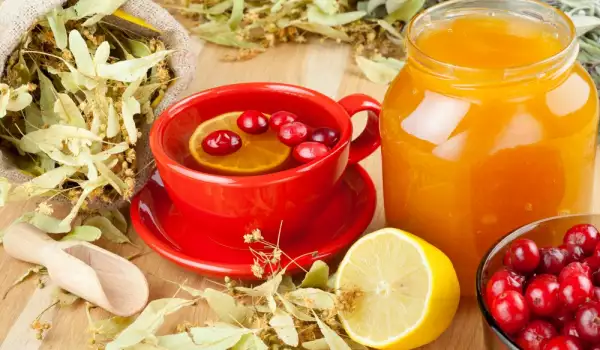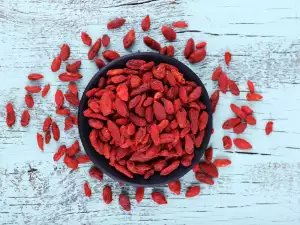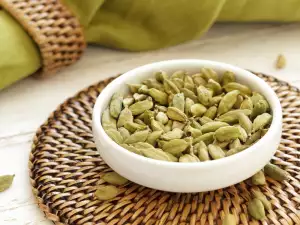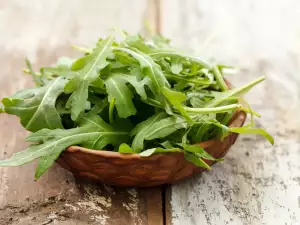Rosehip has been used to treat various ailments since ancient times. The plant is rich in vitamins C, A, K, E and contains minerals - potassium, calcium, magnesium, manganese.
In fact, rose hip is a kind of wild rose - an ancient prickly plant. Blooming is observed in May-July and the ripening of the fruit takes place in autumn. The flowers are pale pink or white and the fruit are red-orange to bright red.
Although the herb has not been studied enough to prove its positive properties, many people trust in rosehip tea, because they help some sort of relief, after they have consumed it.
Due to the large amount of vitamin C contained in rose hip, this herb is undoubtedly one of the best choices for stimulating the immune system.
Extremely suitable for protection against flu and colds, rose hip can be drunk even after a person has become ill. In this situation, the herb will help them recover faster. The herb relieves sore throat, stuffy nose, lung problems. Rose hip decoction strengthens the immune system and reduces the frequency of colds, so it is good to drink it prophylactically. Persistent cough can be relieved with a compress of rosehip tea.
In addition, rose hips have a hemostatic and constipating effect, lowers blood cholesterol, is beneficial for consumption in case of kidneys and gallbladder stones, blood in the urine, hemorrhoids.

It is believed that rosehip tea can lower the blood sugar, has a very good effect on conditions such as infectious hepatitis. It also increases the physical performance.
An interesting fact is that rose hips are richer in carotene than carrots (which are rich in it). Carotene is the strongest of the antioxidants. Taking the recommended amount of antioxidants can significantly reduce the risk of developing cancer.
It is recommended for difficult urination, dry and painful cough, chronic inflammation of the kidneys, diarrhea, heavy or painful menstruation. Combining it with some other useful herbs - sage, lavender, acanthus, enhances the painkiller effect.
Tea from rose hip twigs and leaves helps with stomach discomfort - radiculitis, colic pain, flatulence and diarrhea.
Rose hips improve the metabolism, cleanse the body from toxins, relieve joint pain, and during diets significantly reduce the feeling of hunger.
Rosehip is extremely good for osteoarthritis. It has been proven that the fruit is consumed twice a day in any form for 3-4 months, the pain and symptoms of the disease are significantly relieved. The same happens for rheumatoid arthritis.
Rosehip decoction has a calming effect on the nervous system and helps with insomnia, stress or depression.
Some of the substances contained in rose hips help to strengthen the gums and stop the blood, if there is such a problem. You can intake infusions, tea, decoctions made with rose hips.
The herb plays an important role in the formation of red blood cells, it is recommended for anemia and diabetes. Rosehip has a positive effect on heart problems, kidney crises and other related conditions. It helps lower blood pressure, normalize blood flow, as well as liver disease. Rosehip will help in the fight against stones in the urinary tract, difficult urination, as well as for various infections.

Last but not least, rosehip decoction is a great cleanser for the skin and rosehip oil helps treat acne, dermatitis, bedsores and cracked nipples in nursing mothers. It also helps to even out the complexion and heal wounds.
You can make a compress with a decoction of rose hips for eye inflammation. The herb will alleviate the unpleasant condition and help in its treatment.
You can revive and hydrate your hair by mixing rosehip decoction with oat bran. Add 1 tbsp. of lemon juice to them - apply the mixture on dry hair and wait half an hour. Then rinse it.
Rosehip tea is prepared by pouring a few dried fruit of the herb and leaving it to brew for ten minutes, then it is strained. It has a rather harsh taste, so you can add a little honey to sweeten it.
Make the decoction in the following way:
- Heat half a liter of water and after it has boiled, pour 3 tbsp. of rose hip fruit. Boil for ten minutes in a closed cookware and then drink 1 cup three times a day.
Be careful when consuming rose hips - you should wash the fruit very well, cut off the tips and clean the seeds, because otherwise they can cause irritation and an upset stomach.
Attention! Do not take the herb if you are allergic or intolerant to it! Overdose may cause side effects such as headache, fatigue, nausea and vomiting, stomach discomfort, constipation, sleep problems, palpitations. It is not recommended for use by pregnant women, people who have recently undergone surgery or people with blood related diseases!




















Comments